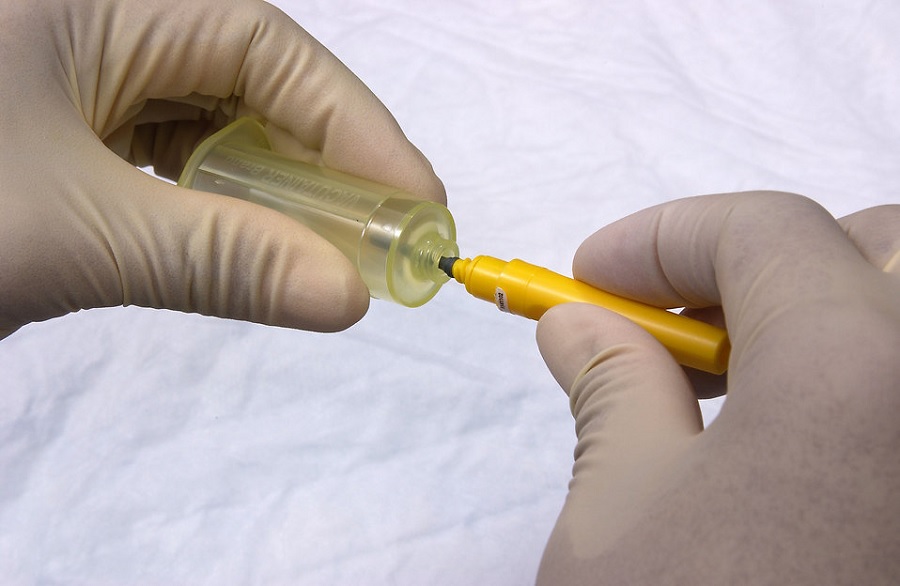Hopes are up that stem cell treatment could eventually lead to the cure for human immunodeficiency virus (HIV) and acquired immunodeficiency syndrome (AIDS). A third HIV patient has reportedly been on remission from the infection following a stem cell transplant.
Scientists handling the case confirmed the news at a conference earlier this month. The patient, called in this case as the “Dusseldorf patient,” is the third person who has been reported to show a very positive response from stem cell treatment. They follow the “London patient,” who have also requested to maintain anonymity, and Timothy Ray Brown or the “Berlin patient.”
For the sake of more accurate reporting, researchers prefer to call the patients’ case as “long-term remission” while others are calling it “cured” of HIV, according to the New York Times. The Dusseldorf patient has been in remission for three months as of the time of reporting. And on a very positive note, they have also been out of medication without showing any symptoms linked to their prior HIV diagnosis.
The London patient has been in remission for 18 months. Like the Dusseldorf patient, they have also stopped taking medications for the said duration. But after being tested, they have an undetectable viral load.
On the other hand, experts have reiterated that developing a cure for HIV/AIDS still has a very long way to go. But seeing the same positive outcome on three patients who got free of the virus after a stem cell transplant is still significant progress. This goes to show that the disease can be cured, International Aids Society president Anton Pozniak told the Guardian.
Meanwhile, lead researcher of the potential HIV cure, Professor Ravindra Gupta of the University College London, shared that it was a painstaking process to them and the patients. “It’s been a difficult journey to offer someone this hope and then say we don’t know it’s going to work. So even stopping his HIV treatment – he had to really think about it and it took him a while to finally do it. It’s difficult because you’ve got to put your faith in what doctors are saying to you,” said Gupta, who worked closely with the London patient.



 CDC Vaccine Review Sparks Controversy Over Thimerosal Study Citation
CDC Vaccine Review Sparks Controversy Over Thimerosal Study Citation  Neuralink Plans High-Volume Brain Implant Production and Fully Automated Surgery by 2026
Neuralink Plans High-Volume Brain Implant Production and Fully Automated Surgery by 2026  Senate Sets December 8 Vote on Trump’s NASA Nominee Jared Isaacman
Senate Sets December 8 Vote on Trump’s NASA Nominee Jared Isaacman  Trump and Merck KGaA Partner to Slash IVF Drug Costs and Expand Fertility Coverage
Trump and Merck KGaA Partner to Slash IVF Drug Costs and Expand Fertility Coverage  FDA Lifts REMS Requirement for CAR-T Cell Cancer Therapies
FDA Lifts REMS Requirement for CAR-T Cell Cancer Therapies  SpaceX Starship Test Flight Reaches New Heights but Ends in Setback
SpaceX Starship Test Flight Reaches New Heights but Ends in Setback  Is space worth the cost? Accounting experts say its value can’t be found in spreadsheets
Is space worth the cost? Accounting experts say its value can’t be found in spreadsheets  Neuren Pharmaceuticals Surges on U.S. Patent Win for Rare Disorder Drug
Neuren Pharmaceuticals Surges on U.S. Patent Win for Rare Disorder Drug  Eli Lilly’s Inluriyo Gains FDA Approval for Advanced Breast Cancer Treatment
Eli Lilly’s Inluriyo Gains FDA Approval for Advanced Breast Cancer Treatment  NASA Astronauts Wilmore and Williams Recover After Boeing Starliner Delay
NASA Astronauts Wilmore and Williams Recover After Boeing Starliner Delay  SpaceX Prioritizes Moon Mission Before Mars as Starship Development Accelerates
SpaceX Prioritizes Moon Mission Before Mars as Starship Development Accelerates  Trump Administration to Launch Autism Initiatives Targeting Acetaminophen Use and New Treatment Options
Trump Administration to Launch Autism Initiatives Targeting Acetaminophen Use and New Treatment Options 































